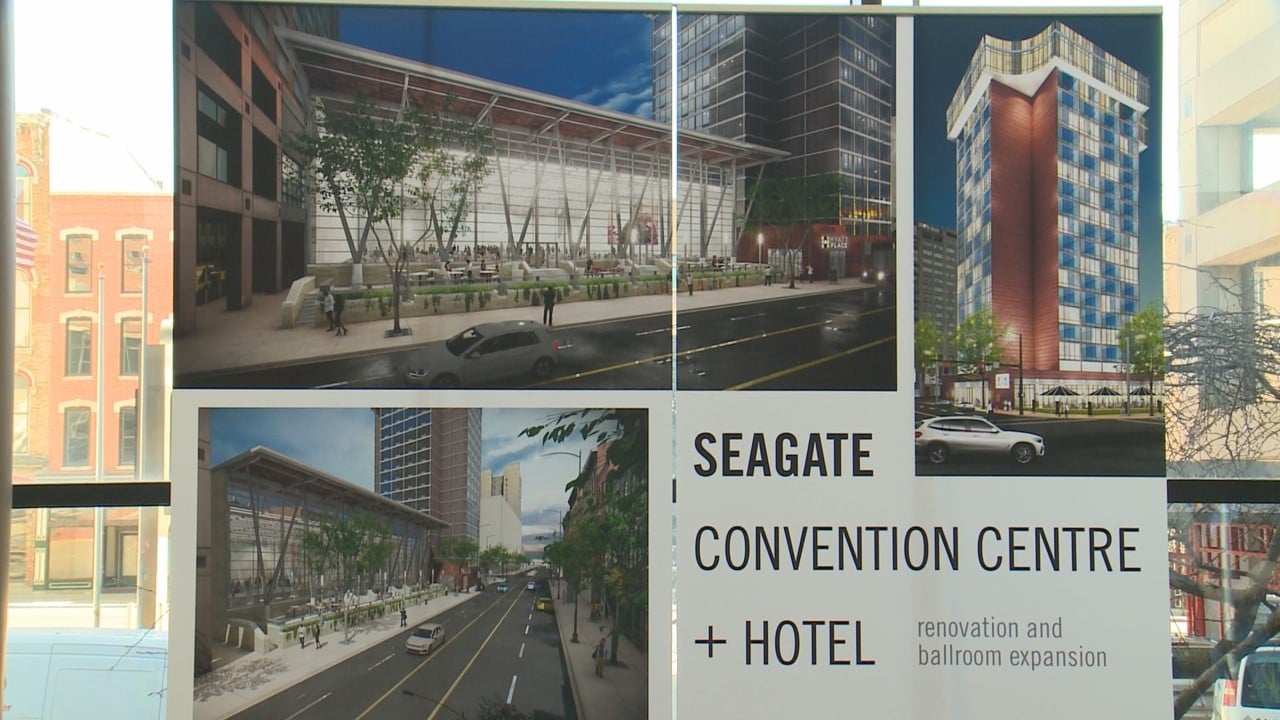By Stacey E. Nadolny
Much like other markets in the “rust belt” Midwest, Toledo is experiencing a period of redevelopment, with major projects occurring in the healthcare, public, education, tourism, and, yes, hospitality sectors. Eight new hotels have opened since 2014 (including the fully renovated Renaissance), accounting for a 24% increase in overall supply in Lucas County during a five-year period. For several years, the growth areas in Toledo were clustered in the suburban markets of Holland and Maumee, as the city’s major employers moved to the south suburbs, leaving major vacancies Downtown. Further south, Perrysburg, in Wood County, has also realized substantial hotel growth.
Source: NorthernMagnolia [CC BY-SA 3.0 (https://creativecommons.org/licenses/by-sa/3.0)]
Things started to change as ProMedica Healthcare moved its headquarters (900 employees) Downtown in 2017. The relocation of this company was the spark that Toledo’s Downtown needed. ProMedica partnered with Chicago-based First Hospitality Group (FHG) to buy the Grand Plaza Hotel (originally built as a Sofitel in 1985), and several brand iterations later, the property was struggling. After a multimillion-dollar conversion, the hotel reopened as a Renaissance, complete with a new, high-end, full-service restaurant and a rooftop bar—the only one of its kind in the market.
Following the success of this property, the former Hotel Seagate, which had been shuttered for years, is currently planned to be redeveloped into a dual-branded Hyatt Place/Hyatt House, with construction slated to begin this summer. The original developer, Key Hotel Properties, recently sold its interest to FHG, allowing for the benefit of operating in conjunction with the Renaissance. New restaurants, the Huntington Center (which opened in 2009), a riverfront park, and new market-rate housing developments have also bolstered activity in Toledo’s Downtown.
Source: www.13abc.com/content/news/Former-Hotel-Seagate-Convention-Center-to-undergo-major-renovations-508339381.html
Key Hotels has been successful in other parts of Toledo, adding three (soon to be four in August 2019) new hotels in the Westgate neighborhood of West Toledo, near the University of Toledo’s main campus. These hotels replaced several aging properties and an obsolete movie theater. The redevelopment of these sites has completely changed the neighborhood and brought in retail tenants like First Watch, Lululemon, and Orangetheory Fitness. Serving major generators, like the university and the expanding Toledo Hospital, these hotels have been very well received in the market area.
Although Toledo probably wouldn’t make the list of “cities to watch” when it comes to hotel real estate, it serves as a strong case for not ignoring secondary markets. All over the Midwest, cities like Akron, Fort Wayne, Dayton, Grand Rapids, and Lansing are experiencing major redevelopment efforts in their urban cores. These developments are often incentivized by tax abatements or historic tax credits, which provide a much-needed financial boost to the project, but ultimately fill a need in the market area for travelers that are looking for higher-end hotel options.



